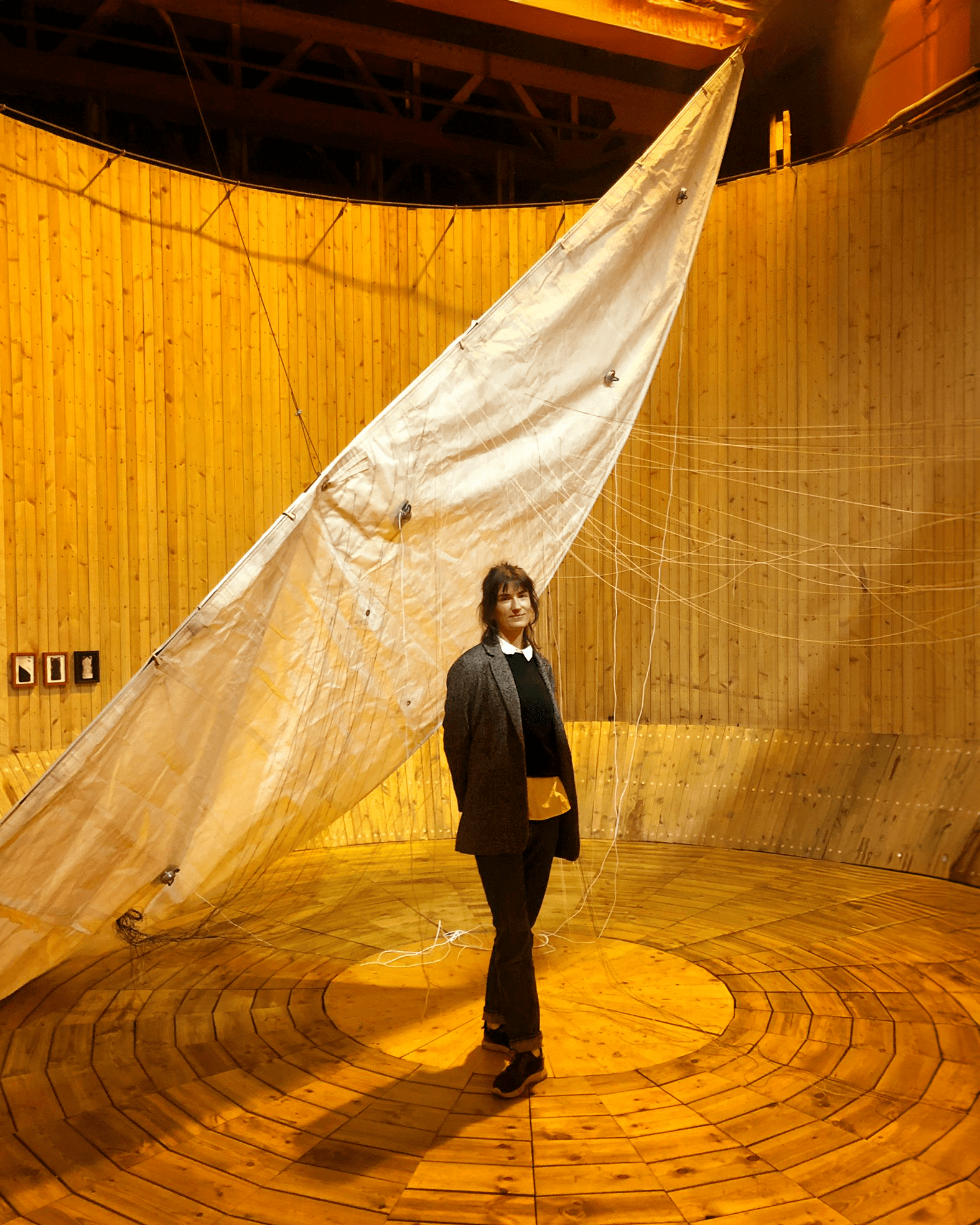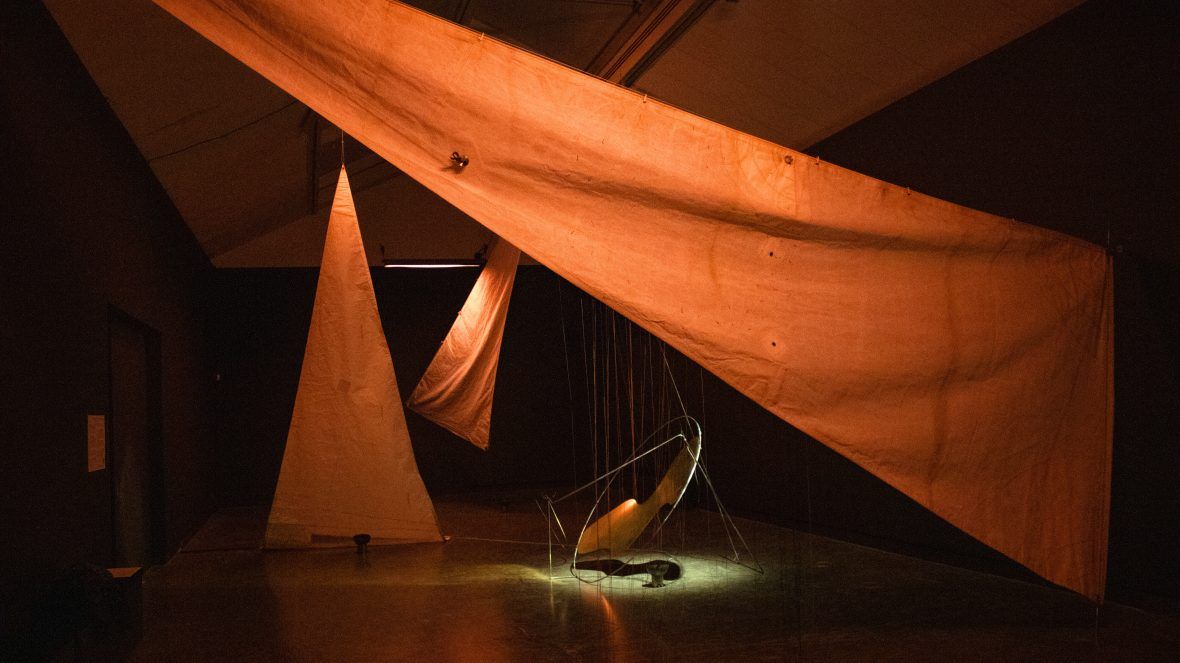Wake is a sound installation by multi-media artist Aga Paulina Młyńczak that transforms rainfall into an ever-shifting sonic landscape.
Blending field recordings with onomatopoeic vocal fragments captured around Eastern Europe and across the UK, Młyńczak creates a four-speaker composition that surrounds listeners in a storm that is ever changing. Inspired by the parallels between hearing unfamiliar languages and listening to rain, Wake reflects on themes of migration, refuge and the search for meaning within patterns of sound.

“There cannot be discussions of displacement and erasure today without addressing the settler-colonial project, ethnic cleansing and genocide currently taking place in Palestine. Accordingly, I have been expanding this work with considerations of mass displacements caused by war, and the recent hateful debates on migration in mind. The work belongs to a line of thought concerned with understanding both voluntary migrations and forced displacement through the history of language—tracing evidence of these processes in everyday life, and in words shared with my peers.
I want to thank Cryptic for inviting me to exhibit this work and offering this opportunity. Further thanks are to the vocalist Dawn Coulshed, my artist assistant Seòras Rae, Billy Teasdale, ISSP Riga Residency, Stephen Skrynka at The Revelator, Cove Park, and Glasgow Sculpture Studios for supporting me in developing this work. I also want to thank the CCA staff for install support and trusting me with the gallery space.
I’m excited to show at the CCA at the start of this new chapter. I welcome CCA’s latest public statement acknowledging the harmful outcome of decisions taken by the CCA board in June 2025, and committing to meaningful organisational change, and would like to note their and Cryptic’s encouragement that I offer my own position in this text. I strongly believe in the responsibility of artists and cultural workers to publicly oppose the genocide of the Palestinians, and I am committed to the Palestinian Academic and Cultural Boycott of Israel (PACBI). I would like to see these commitments reflected in our cultural institutions.” Aga Paulina Młyńczak

